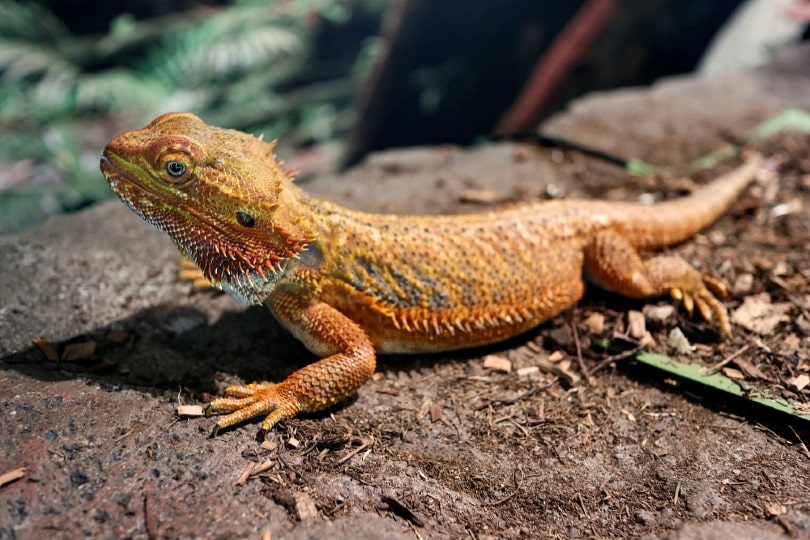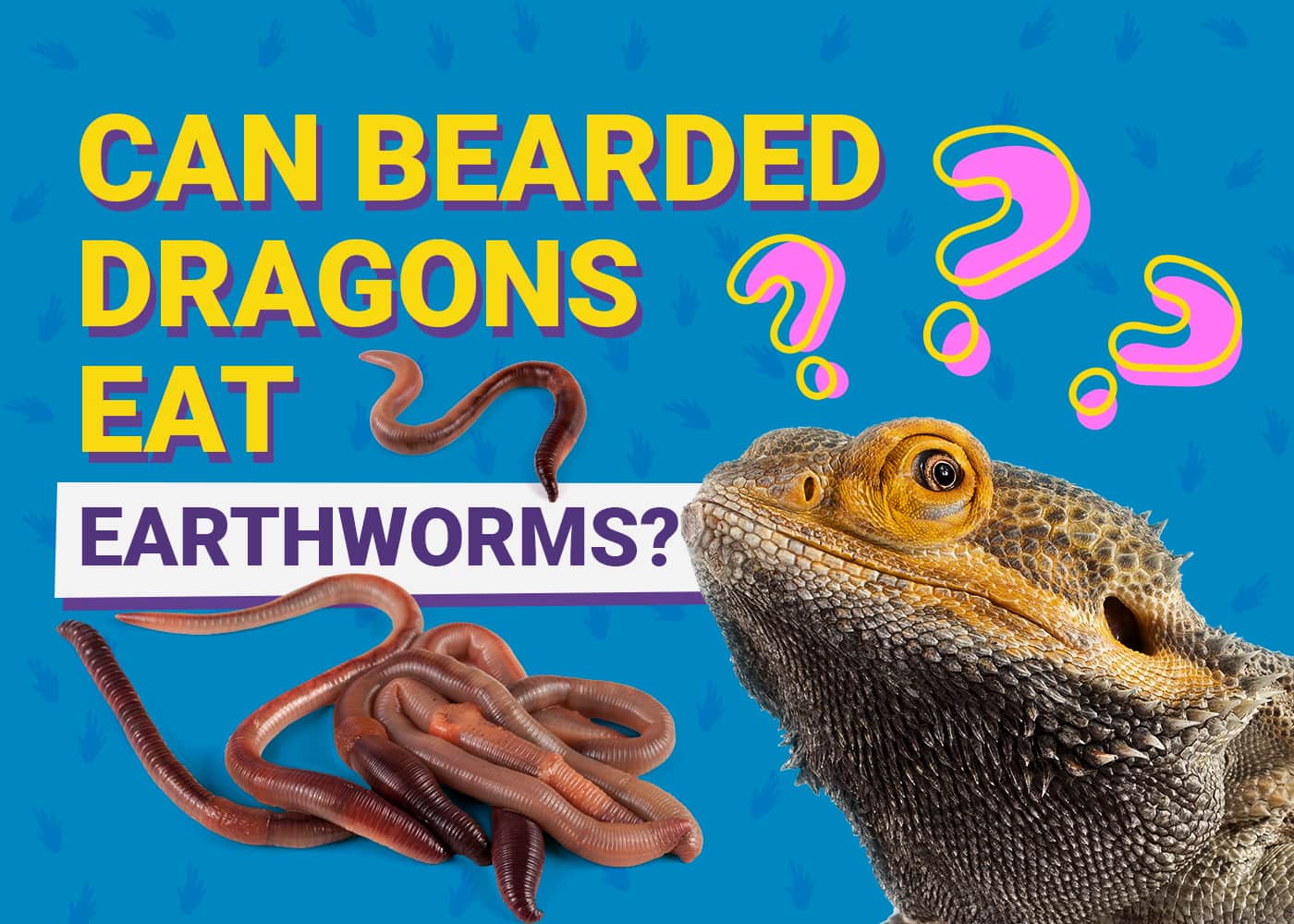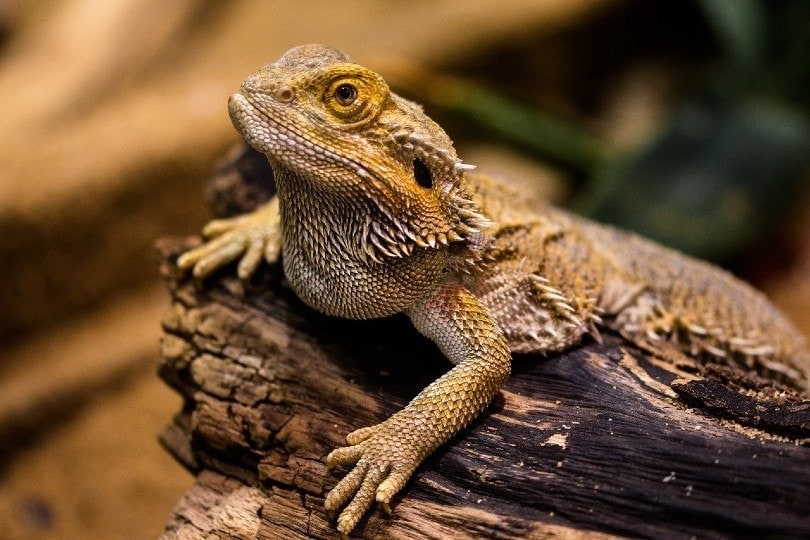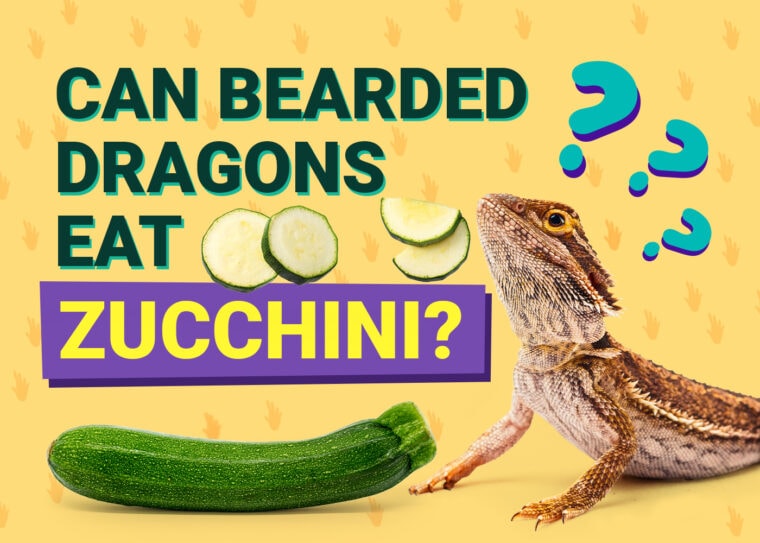
Zucchini is thought of as a vegetable by many people, but it is actually a seed-filled fruit. This watery food is great on salads and makes for a refreshing appetizer. Also known as courgette or summer squash, this veggie comes from the same family as melons and cucumbers. We humans know that this food is a healthy addition to any meal, but is it a good choice for bearded dragons?
The short answer is yes, bearded dragons can eat zucchini in moderation, but it isn’t recommended as a dietary staple in their diet and should only be considered an occasional treat.
Let’s explore why.

The Pros of Feeding Zucchini to Bearded Dragons
Zucchini is sometimes referred to as marrow, but the two fruits aren’t identical. This article discusses the viability of zucchini (Cucurbita pepo) in a bearded dragon’s diet.
Zucchini is (usually) safe for bearded dragons to consume, though it doesn’t offer much in terms of meaningful nutritional benefits1.
Baby zucchini has a similar nutritional profile.
Zucchini does have several other vitamins and minerals, and it’s low in oxalates and goitrogens. These traits are all welcome in a bearded dragon’s diet2.
However, when compared to other fruits and vegetables, there isn’t much that either type of zucchini has going for it from a nutritional standpoint. Still, the better ratio of calcium to phosphorus in “regular” zucchini renders it better than baby zucchini.
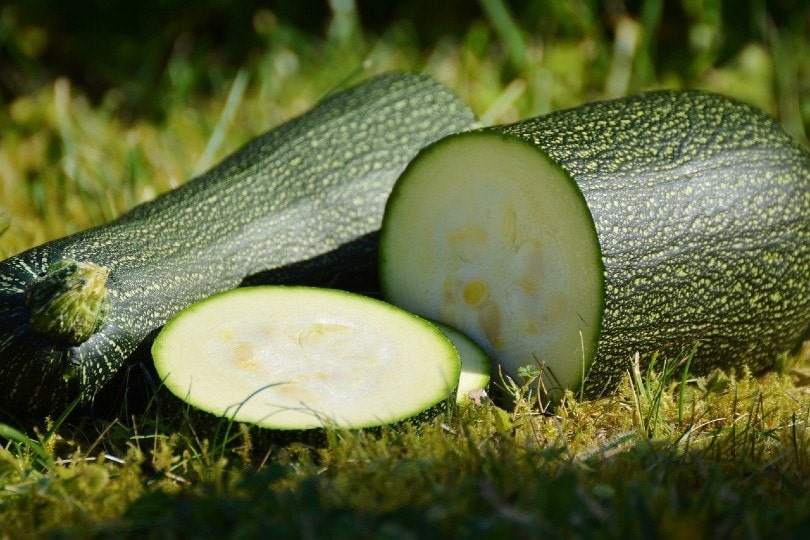
The Cons of Feeding Zucchini to Bearded Dragons
Cucurbitacins
These compounds are naturally found in zucchini and are what give the fruit its bitter taste. Cucurbitacin is considered a toxin because it can cause gastrointestinal upset. Although it is used as a medicine by traditional practitioners, it has been demonstrated to cause adverse effects in certain species of animals, including mice and brine shrimp3.
There’s usually no way to tell from appearance alone how much cucurbitacins a zucchini has. The cause is thought to be related to growing a crop in poor environmental conditions (such as dry weather or irregular watering) or one hybridizing with other zucchini variants4.
This drawback severely diminishes zucchini’s appeal as a dietary option for your bearded dragon.
Calcium-to-Phosphorus Ratio
Since zucchini is low in calcium and high in phosphorus, it can cause metabolic bone disease in your bearded dragon if they eat too much of the produce regularly. Phosphorus binds to calcium, so the calcium cannot be absorbed by the bearded dragon. An excess of phosphorus in the body will prompt your bearded dragon’s body to release calcium from the bones to bind with the phosphorus. The result of this over time is weakened bones.
Therefore, your pet bearded dragon should not eat more than a couple of small pieces of zucchini once a week.
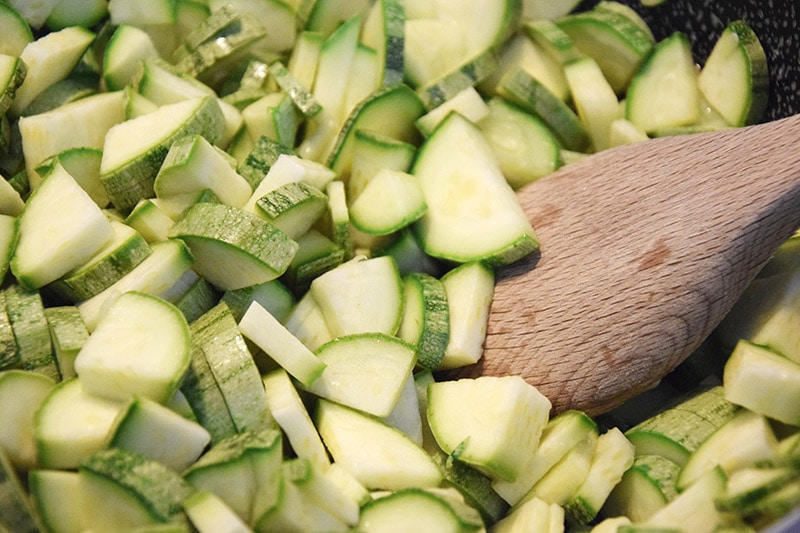
Water Content
Zucchini is also full of water, which will help keep your pet bearded dragon hydrated. But if too much is eaten, your pet could become overhydrated and develop diarrhea. These animals need only a little amount of water to stay healthy. This is another good reason to limit the amount of zucchini that you feed your pet reptile.
Feeding Suggestions
Zucchini should always be scrubbed clean before it is served to bearded dragons, to ensure that pesticide residue and other harmful chemicals are removed. The skin should be left on because it contains most of the nutrients that zucchinis have to offer bearded dragons. Cut the zucchini into small, bite-sized pieces, and remove the seeds because they are choking or impaction hazards. Offer just two or three pieces in one sitting.
You can throw the zucchini piece in a bowl with a few pieces of lettuce, a piece of carrot, and a cherry tomato and call it a salad—bearded dragons love salad! Alternatively, you can use the zucchini to get your bearded dragon to come to you and allow you to touch and hold them. This can come in handy if you are trying to tame your pet.
Your bearded dragon might not enjoy eating zucchini overall, and that is fine. There is plenty of other produce to feed your pet that is even healthier for them than zucchini. Choose from apples, berries, collard greens, cabbage, dandelion greens, and even worms. Your bearded dragon is sure to enjoy a variety of different foods.

Conclusion
Yes, bearded dragons can eat zucchini. However, this food is not the best option when it comes to nutritional value and health risks. If you happen to be eating zucchini for dinner, feel free to share a piece or two with your pet. But there is no reason to go out of your way to prepare this fruit for them.
Featured Image Credit: congerdesign, Pixabay

